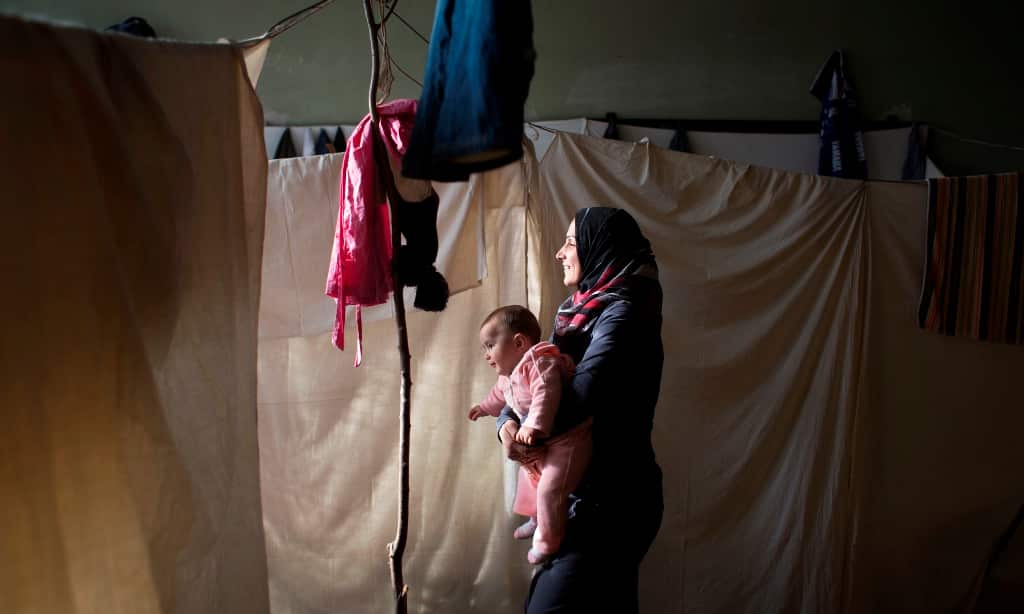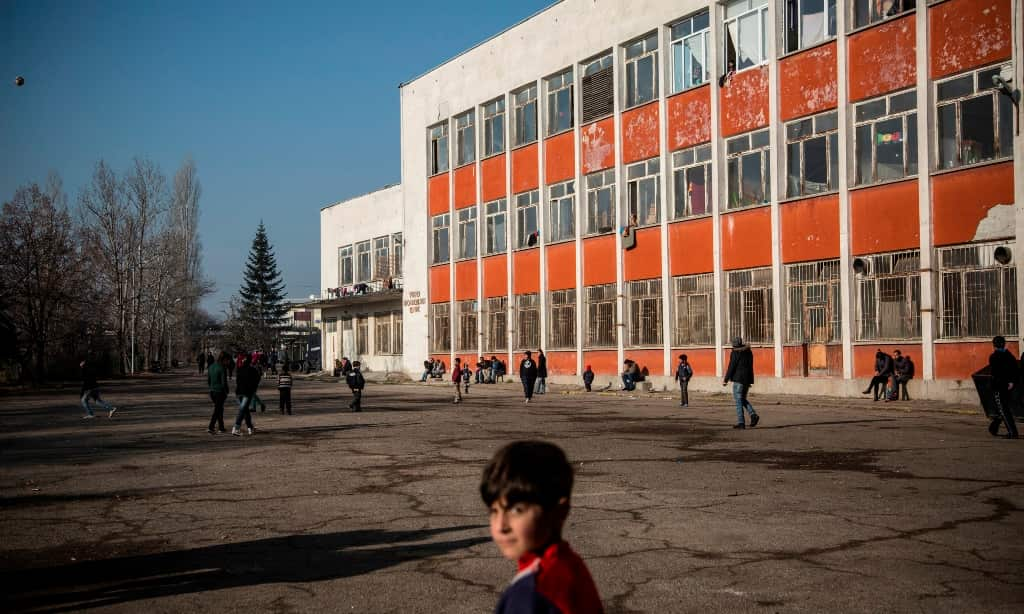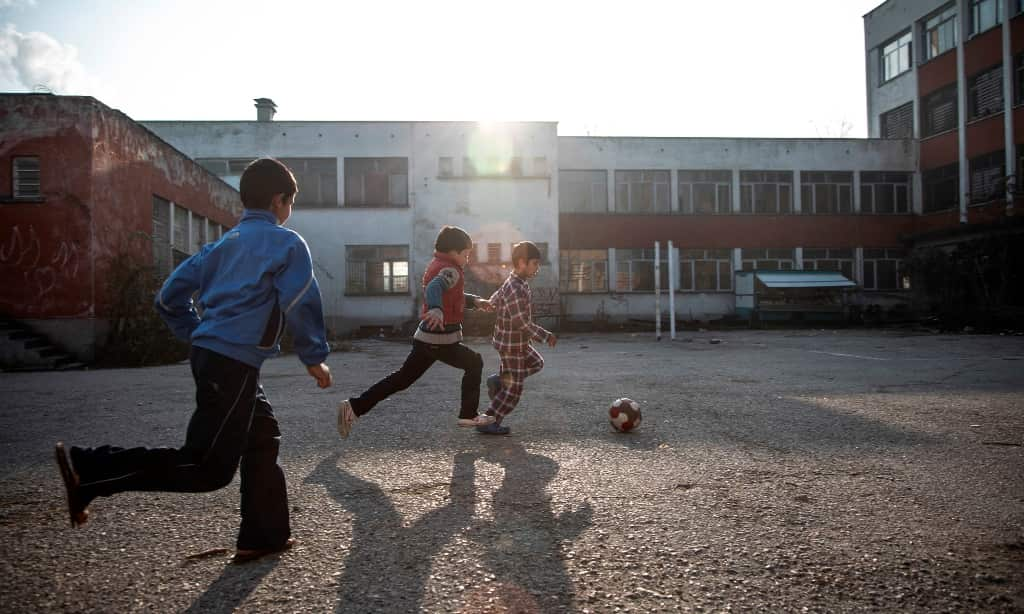In a converted, abandoned school in Bulgaria’s capital, Sofia, Syrian women sat together on the brown grass under a tree, desperately trying to avoid the sweltering heat.
Men sat around, fighting boredom by drinking coffee and playing on their phones in the school’s former playground.
Dozens of children ran around, causing havoc as a Bulgarian security guard watched over them.
“I have humanitarian status but I’m still here,” said Mohammed, a refugee in his mid-twenties.
“There’s no work, nothing to do. I just sit around drinking coffee.”
Bulgaria had, until last year, only registered about 1000 asylum seekers per year over the last decade.
But this all changed when thousands of Syrians fled to the country, with plans to use it as a gateway to western Europe.

But what asylum seekers here didn’t expect were the harsh conditions and treatment at the hands of the Bulgarian government.
“Bulgaria was unprepared for the surge in asylum seekers, showing itself incapable of processing individual asylum claims, and failing to provide new arrivals with basic humanitarian assistance, including food and shelter,” a scathing report by Human Rights Watch, titled ‘Containment Plan’, recently said.
Those here at the Voenna Rampa centre said conditions however had improved dramatically in the last few months.
Many said they had previously been living in deplorable conditions, sleeping on the floor with only a sheet separating families and with only about a dozen toilets for more than eight hundred people.
Nowadays there are about 400 people here, the majority Syrian and the remaining from Iraq and Afghanistan.
But while living conditions appear to have improved somewhat, other problems remain.
While the Bulgarian government’s record on granting refugee or humanitarian status is relatively good, there is a severe lack of support to these people once they have been granted status or have left the reception centres, HRW said.

According to statistics from Bulgaria’s State Agency for Refugees (SAR), 7144 people applied for asylum last year - 4511 were Syrian.
SAR processed 2816 claims and granted 2279 people humanitarian status, meaning they basically had the same rights as Bulgarians themselves, but were unable to leave the country.
Meanwhile, 183 asylum seekers were granted refugee status, meaning they could travel within the EU for 90 days.
Those who receive refugee status generally leave Bulgaria immediately, hoping to be able to receive status in another EU member state. However, they do this with the risk of being sent back if unable to change their status once in the other country.
While many asylum seekers have received humanitarian status, they don’t leave the centre because they have no money, no opportunities and no affordable housing.
Once people receive either status, they also no longer receive the 65 leva ($48) from the government they got as asylum seekers.
“There's no housing support, language classes, no way to validate their skills,” Boris Cheshirkov from UNHCR said.
“The system created conditions so people want to leave Bulgaria.”

He added that prior to 2014, Bulgaria operated a National Integration Programme for refugees, but it had since ended.
“It was implemented only in Sofia and its lack of flexibility created very high dropout rates,” he said.
“Not more than 90 refugees completed the programme each year.”
He said there was a draft integration plan in motion but no word on when it would be adopted.
“It's already June and an integration plan is still missing.”
Consequently, many refugees remained in the centres beyond the time they were meant to have left because they purely didn’t have the means to live independently, Cheshirkov said.
There are also no schools for the children, he added.
“They’re just wasting their lives away, dying a slow death,” a Syrian refugee, who had just received refugee status and was about to leave for Germany, said of the situation.
“No one can speak Bulgarian [and] there’s no work. If the government had an integration policy, then yes, some people would want to stay here. It is nice out of the camps.”
But even as this refugee spoke, he said he often was nervous walking around Sofia, fearful of xenophobic remarks and even attack from skinheads that had been widely reported among refugee groups.
And with comments like this, it’s not surprising:
“Refugees are malignant tumours. A Muslim army of mass murderers is invading Bulgaria with the approval of the government,” Bulgarian Interior Minister Tsvetlin Yovche said last year.
Sophie Cousins is a freelance foreign correspondent.

